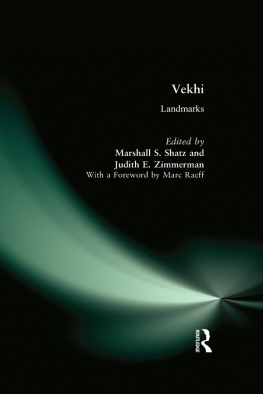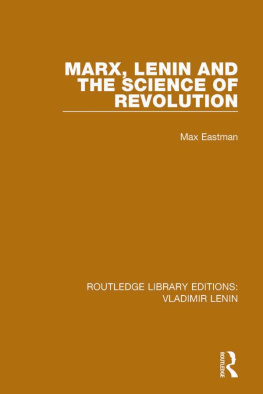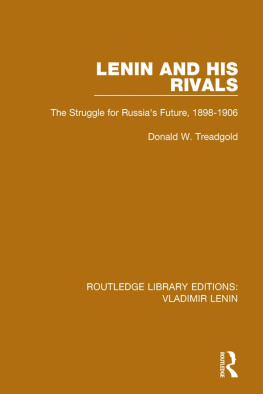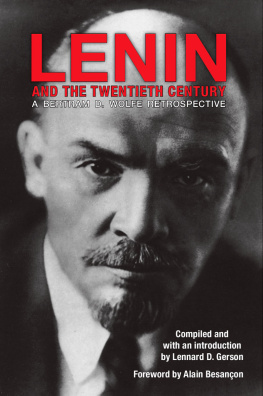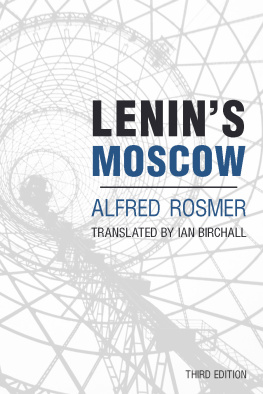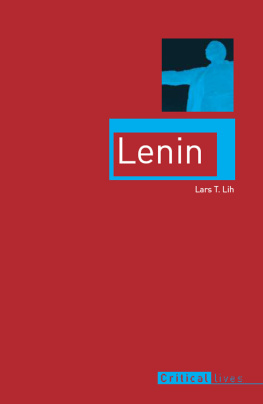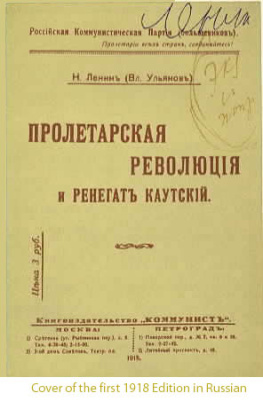Nikolai A. Berdyaev - Vekhi: Landmarks
Here you can read online Nikolai A. Berdyaev - Vekhi: Landmarks full text of the book (entire story) in english for free. Download pdf and epub, get meaning, cover and reviews about this ebook. year: 1994, publisher: Routledge, genre: Science. Description of the work, (preface) as well as reviews are available. Best literature library LitArk.com created for fans of good reading and offers a wide selection of genres:
Romance novel
Science fiction
Adventure
Detective
Science
History
Home and family
Prose
Art
Politics
Computer
Non-fiction
Religion
Business
Children
Humor
Choose a favorite category and find really read worthwhile books. Enjoy immersion in the world of imagination, feel the emotions of the characters or learn something new for yourself, make an fascinating discovery.
- Book:Vekhi: Landmarks
- Author:
- Publisher:Routledge
- Genre:
- Year:1994
- Rating:5 / 5
- Favourites:Add to favourites
- Your mark:
- 100
- 1
- 2
- 3
- 4
- 5
Vekhi: Landmarks: summary, description and annotation
We offer to read an annotation, description, summary or preface (depends on what the author of the book "Vekhi: Landmarks" wrote himself). If you haven't found the necessary information about the book — write in the comments, we will try to find it.
Vekhi: Landmarks — read online for free the complete book (whole text) full work
Below is the text of the book, divided by pages. System saving the place of the last page read, allows you to conveniently read the book "Vekhi: Landmarks" online for free, without having to search again every time where you left off. Put a bookmark, and you can go to the page where you finished reading at any time.
Font size:
Interval:
Bookmark:
 Landmarks
Landmarks
BERDIAEV
BULGAKOV
GERSHENZON
IZGOEV
KISTIAKOVSKII
STRUVE
FRANK
MARSHALL S. SHATZ
and
JUDITH E. ZIMMERMAN
MARC RAEFF

2 Park Square, Milton Park, Abingdon, Oxon OX14 4RN
711 Third Avenue, New York, NY 10017, USA
No responsibility is assumed by the publisher for any injury and/or damage to persons or property as a matter of products liability, negligence or otherwise, or from any use of operation of any methods, products, instructions or ideas contained in the material herein.
Vekhi. English.
Vekhi = Landmarks / [Nikolai Berdiaev et al.]; translated by
Marshall S. Shatz and Judith E. Zimmerman; with a foreword
by Marc Raeff.
p. cm.
Includes bibliographical references and index.
Contents: Philosophical verity and intelligentsia truth / Nikolai
BerdiaevHeroism and asceticism (reflections on the religious
nature of the Russian intelligentsia) / Sergei BulgakovCreative
self-consciousness / Mikhail GershenzonOn educated youth (notes
on its life and sentiments / A.S. IzgoevIn defense of law (the
intelligentsia and legal consciousness) / Bogdan KistiakovskiiThe
intelligentsia and revolution / Petr StruveThe ethic of
nihilism (a characterization of the Russian intelligentsias moral
outlook) / Semen Frank.
ISBN 1563243903 ISBN 1563243911
1. RussiaIntellectual life18011917. 2. IntellectualsRussia.
I. Berdiaev, Nikolai, 18741948. II. Shatz, Marshall S.
III. Zimmerman, Judith E. IV. Title. V. Title: Landmarks.
DK255.V4413 1994
001.10947dc20 9426039
CIP
ISBN 13: 9781563243905 (hbk)
Font size:
Interval:
Bookmark:
Similar books «Vekhi: Landmarks»
Look at similar books to Vekhi: Landmarks. We have selected literature similar in name and meaning in the hope of providing readers with more options to find new, interesting, not yet read works.
Discussion, reviews of the book Vekhi: Landmarks and just readers' own opinions. Leave your comments, write what you think about the work, its meaning or the main characters. Specify what exactly you liked and what you didn't like, and why you think so.

